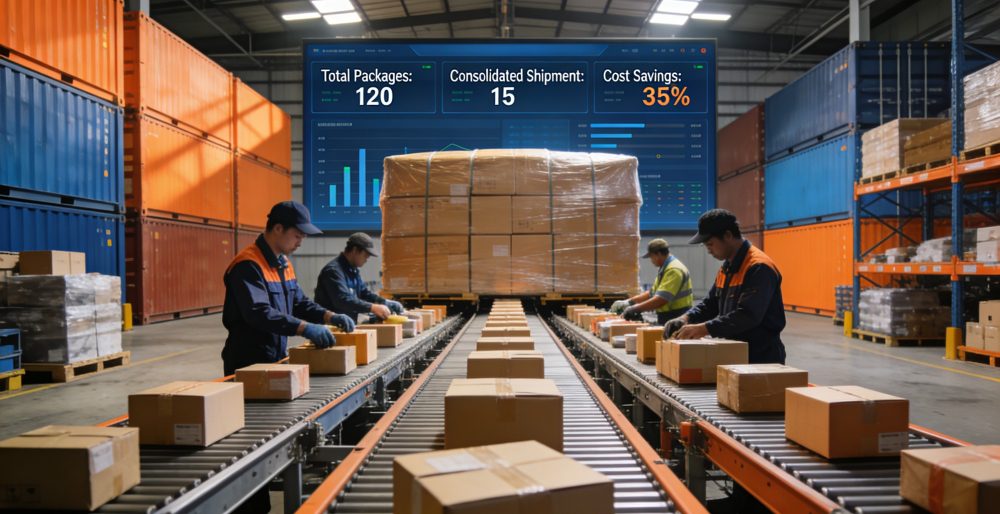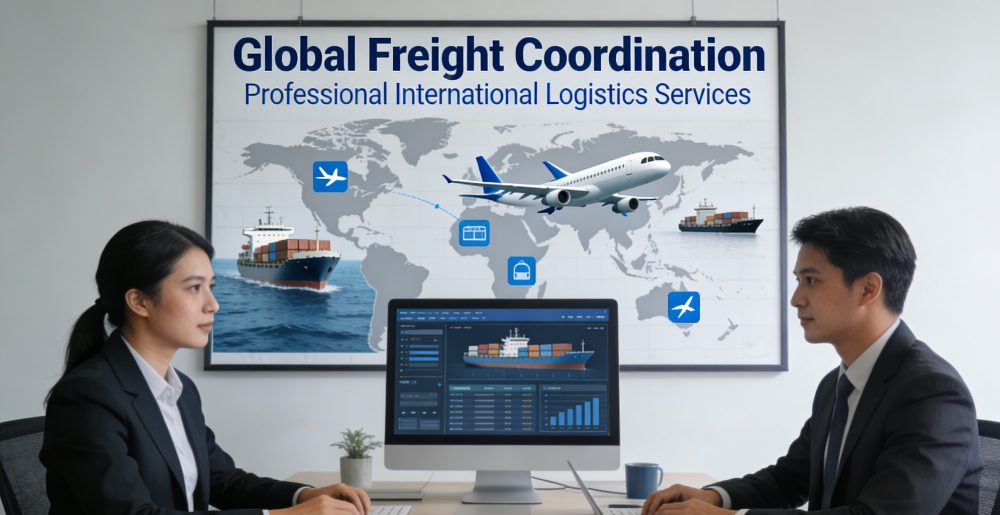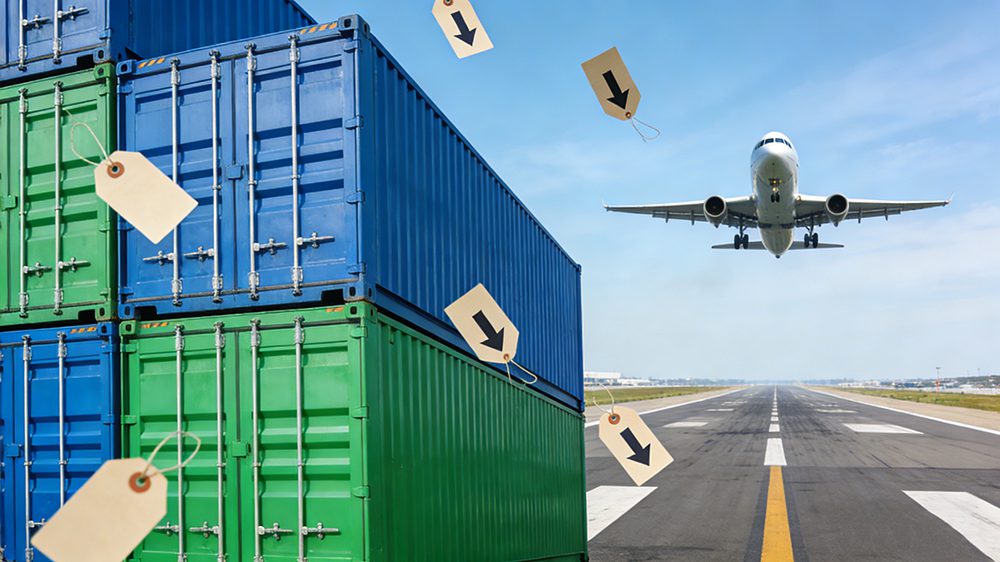BLOG
EX Works Incoterms: Essential Guide for Newcomers to International Trade
- wanmeili
- 2024-09-10
What is EX Works (EXW) Meaning
The EX Works (EXW) Incoterm is one of the most basic and widely used terms in international trade. It represents a seller’s minimum obligation, with the buyer taking on most of the responsibility and risk for the shipment. In an EX Works agreement, the seller is responsible for making the goods available for pickup at their own premises (factory, warehouse, etc.). On the other hand, the buyer is responsible for all transportation costs, including export clearance and delivery to the final destination.
Buyer and Seller Responsibilities under EXW Agreements
Buyers Responsibilities
The buyer is responsible for the arrangement for the transportation of goods. Take ocean freight shipping as an example, It contains shipping from the seller’s premises to the port of loading, the POL to the POD, and till to the final destination. giving them greater control over shipping methods and costs. Looking for a local logistics company that assists with handling this domestic leg would be ideal for buyers.
The buyer incurs most of the costs associated with the shipment, including freight, insurance, customs duties, and handling fees. All costs can be worked out and seen clearly without any concealment should a diligent shipping agent provide.
The buyer would be accountable for handling export and import customs clearance. If any issues occur in customs, they should proactively work with the freight company to solve these problems.
Risk transfers from the seller to the buyer once the goods are made available at the designated location. The shipping company is likely to suggest buying cargo insurance before ocean land, or air freight shipping to protect against damage, theft, or loss in case the product amount is valuable.
Seller’s Responsibilities
The seller’s primary obligation is to ensure that the goods are available for pickup at the agreed-upon location within the specified timeframe. They should help to provide relative export document information such as commercial invoices, packing lists, etc. to go through the customs clearance process.
Once the goods are collected from the seller’s property, the risk is transferred to the buyer. They are not responsible for loading the goods onto the transport vehicle or for arranging any transportation.
The seller should make the cargo export compliant with local regulations.

Advantages and Limitations of EXW
Benefits of EXW for Sellers
EXW is straightforward to understand, making it a popular choice for sellers in international trade as it requires very little additional work and risk for the seller.
Sellers have limited obligations under EXW, no need to arrange the shipping after the production and package, reducing their potential complexity and costs if they are not so familiar with the transportation.
Sellers can focus on production and making goods of premium quality and available to the customers. When a seller who is always doing business with the local market happens to make international trade and lacks the export license, they can use ex-works terms just like the work done domestically, simplifying the transaction process.
Benefits of EXW for Buyers
Buyers have more control over the shipping process and are in charge of holding the cargo once they pick up the goods from specified places.
EXW seems to be a more cost-saving option where sellers can get a tax refund on the products they export from China so they offer a lower quote to stay competitive.
EX-Woks term offers flexibility in terms of transportation arrangements, allowing the buyer to choose the most cost-effective and efficient shipping method based on their needs.
Drawbacks of EXW
Since the buyer assumes all risks once the goods are made available by the seller, they are responsible for any damage or loss during transportation.
While EXW offers cost control benefits, buyers must factor in all transportation costs, as well as potential delays or additional charges that may arise during the shipping process.
Sellers may have less control over the shipment once the goods are handed over to the buyer, potentially leading to issues with delivery or compliance. Buyers have to handle the entire shipping process, including transportation, customs clearance, and compliance with import regulations, which can be challenging for inexperienced importers.
Ex Works Incoterms
Ex Works v/s FOB
Responsibility for Delivery: Under EXW, the seller’s responsibility ends when the goods are made available at their premises, while with FOB, the seller is responsible for delivering the goods to the port of shipment.
Risk of Loss: In EXW, risk transfers from the seller to the buyer once the goods are available, whereas with FOB, the risk transfers to the buyer when the goods pass the ship’s rail at the port of shipment.
Transportation Costs: In EXW, the buyer is responsible for all transportation costs, while in FOB, the seller is responsible for transporting the goods to the port of shipment.
Control Over Shipping: With EXW, the buyer has full control over the shipping process, including selecting carriers and managing logistics, whereas with FOB, the seller has more control over the shipping arrangements.
Ex Works v/s CIF
Insurance Responsibility: Under EXW, the buyer is responsible for arranging transport and insurance, while under CIF, the seller is responsible for arranging and paying for insurance.
Transportation Costs: In EXW, the buyer is responsible for all transportation costs, including insurance, whereas in CIF, the seller covers transportation and insurance costs to deliver the goods to the destination port.
Risk of Loss: In EXW, risk transfers to the buyer once the goods are made available, while in CIF, the risk transfers to the buyer once the goods are on board the vessel.
Delivery at Destination: While EXW requires the buyer to handle transport and delivery from the seller’s premises, CIF includes delivery to the destination port.
Ex Works v/s DDP
Delivery Responsibility: With EXW, the seller’s obligation ends once the goods are available at their premises, while with DDP, the seller must deliver the goods to the buyer’s named place.
Customs Clearance: Under EXW, the buyer is responsible for import clearance and duties, whereas under DDP, the seller handles customs clearance and pays duties and taxes.
Risk and Insurance: In EXW, the buyer bears the risk and arranges insurance, whereas in DDP, the seller is responsible for risk and insurance until delivery at the buyer’s location.
Cost Allocation: In EXW, the buyer bears most costs, including transportation, duties, and insurance, while in DDP, the seller covers all costs up to delivery at the buyer’s location
When to opt for an EXW Agreement when importing from China?
If you want full control over the shipping process, including selecting the carrier, arranging transportation, and managing logistics, opting for EXW is beneficial. This is especially useful when you have trusted shipping partners in China or prefer to handle the logistics yourself.
By choosing EXW, you can potentially save on shipping costs as the responsibility for transportation from the seller’s premises to the destination falls on you. This can be advantageous if you have established cost-effective shipping arrangements or want to have more control over cost management.
When time is crucial and you want to expedite the shipping process, opting for EXW can help in reducing transit times. By arranging transportation directly, you can choose the most efficient route and mode of transport to speed up delivery from China.
If you have a robust network or presence in China, opting for EXW can leverage your local connections and resources for a smoother import process. This is beneficial if you have reliable partners for customs clearance, warehouse facilities, or transport services in China.
Conclusion
By considering these factors and evaluating your specific requirements, resources, and capabilities, opting for an EX Works (EXW) agreement when importing from China can be a strategic choice to enhance control, cost efficiency, and operational flexibility in your international trade transactions.
FAQs
What does EX Works (EXW) Mean in shipping terms?
It is the most basic and least restrictive Incoterm, placing the onus on the buyer to arrange and pay for the entire shipment process.
When does the risk transfer from the seller to the buyer in an EXW agreement?
In an EXW agreement, the risk transfers from the seller to the buyer as soon as the goods are made available at the seller’s premises or another named place specified in the contract.
Does the seller handle export customs clearance under EXW?
The seller is not responsible for export customs clearance. The buyer is responsible for all export formalities, including obtaining necessary licenses and permissions, as well as handling export customs clearance.
What should buyers be aware of when negotiating an EXW agreement?
Buyers should ensure they are aware of all export regulations and requirements in the seller’s country to avoid any delays or penalties.
Buyers need to organize and pay for transportation from the seller’s premises, including choosing a reliable carrier and handling the logistics of moving the goods.
Buyers should consider securing appropriate insurance coverage for the goods in transit, as the seller is not responsible for insuring the shipment under an EXW agreement.
Due to limited seller responsibility in an EXW agreement, buyers should conduct thorough quality inspections before accepting the goods to avoid any disputes later on.
Buyers must handle all customs clearance processes, including import duties and taxes in their country, as the seller is not responsible for these under the EXW agreement.
Effective communication between buyer and seller is crucial to ensure a smooth transaction. Buyers should also maintain accurate documentation throughout the process to prevent misunderstandings.
Related Posts



